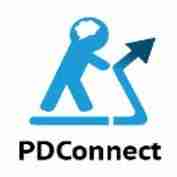Professor Kay Cooper k.cooper@rgu.ac.uk
Associate Dean (Research)
Professor Kay Cooper k.cooper@rgu.ac.uk
Associate Dean (Research)
Dr Anastasia Pavlova a.pavlova1@rgu.ac.uk
Research Fellow
During their career, almost 70% of UK physiotherapists experience muscle, joint or bone pain that they believe is caused by their work; these are known as work-related musculoskeletal disorders (WRMSDs). In 2019/2020 WRMSDs cost the NHS approximately £400 million due to 8.9 million workdays being lost through staff absence. Daily work activities that involve moving and handling patients have been linked with the development of WRMSDs. Physiotherapists are at risk due to the type of handling they do during patient treatment sessions.
Current interventions to reduce WRMSDs, such as manual handling training and providing mechanical lifting aids to move patients, are not significantly reducing rates of WRMSDs. Evidence from nursing and other (non-healthcare) manual professions suggests that a tailored approach involving exercise targeted at job-specific activities may reduce WRMSDs in physiotherapists. However, developing and implementing any intervention into practice would be more successful if the individuals that stand to benefit are involved throughout the process.
This study aims to explore the views of physiotherapists surrounding WRMSDs, moving and handling of patients and the role of targeted exercise in reducing WRMSD prevalence. A series of interviews and focus groups will be held with NHS physiotherapists in Grampian and across the UK. The results will inform future work aimed at developing a comprehensive intervention to reduce WRMSDs in physiotherapists.
| Status | Project Live |
|---|---|
| Value | £15,451.00 |
| Project Dates | Apr 1, 2023 - Nov 30, 2024 |
Health & wellbeing of the Scottish farming population Feb 2, 2018 - Jul 31, 2018
This is a systematic review of the published international literature on the effectiveness of interventions to address mental health and chronic occupational diseases in the farming population. Previous systematic literature reviews have been conduct...
Read More about Health & wellbeing of the Scottish farming population.
A decision support system for self management of low back pain Jan 1, 2016 - Mar 31, 2021
Low back pain (LBP) is the most significant contributor to disability in Europe. Most patients have non-specific LBP i.e., pain that cannot reliably be attributed to a specific disease/ pathology. LBP is the fourth most common diagnosis seen in prima...
Read More about A decision support system for self management of low back pain.
Technology for falls prevention in the hospital setting: a mixed method synthesis of the evidence to inform best practice. Apr 1, 2018 - Mar 31, 2019
Falls are a major public health issue, affecting many people. Falls are more common in older people and with the ageing population, falls will become an increasing problem. Falls in the hospital setting can cause distress, injury and even death. It i...
Read More about Technology for falls prevention in the hospital setting: a mixed method synthesis of the evidence to inform best practice..
Artificial Intelligence Conversational Intervention for Encouraging Physical Activity in Older Adults Feb 1, 2019 - Aug 31, 2019
This project will address two of the GetAMoveOn research challenges:
1. Designing a tailored intervention system that is able to monitor physical activity levels of older adults from sensor data and provide a conversational intervention to enhance a...
Read More about Artificial Intelligence Conversational Intervention for Encouraging Physical Activity in Older Adults.

A collaborative approach to community based exercise provision for people with Parkinson’s Jun 1, 2019 - Dec 1, 2023
Exercise for People with Parkinson’s is a key ingredient for effective management, improving muscle strength, balance, walking, fitness, function, cognition and depression. Some evidence suggests that participation in regular exercise may limit the...
Read More about A collaborative approach to community based exercise provision for people with Parkinson’s.
About OpenAIR@RGU
Administrator e-mail: publications@rgu.ac.uk
This application uses the following open-source libraries:
Apache License Version 2.0 (http://www.apache.org/licenses/)
Apache License Version 2.0 (http://www.apache.org/licenses/)
SIL OFL 1.1 (http://scripts.sil.org/OFL)
MIT License (http://opensource.org/licenses/mit-license.html)
CC BY 3.0 ( http://creativecommons.org/licenses/by/3.0/)
Powered by Worktribe © 2025
Advanced Search